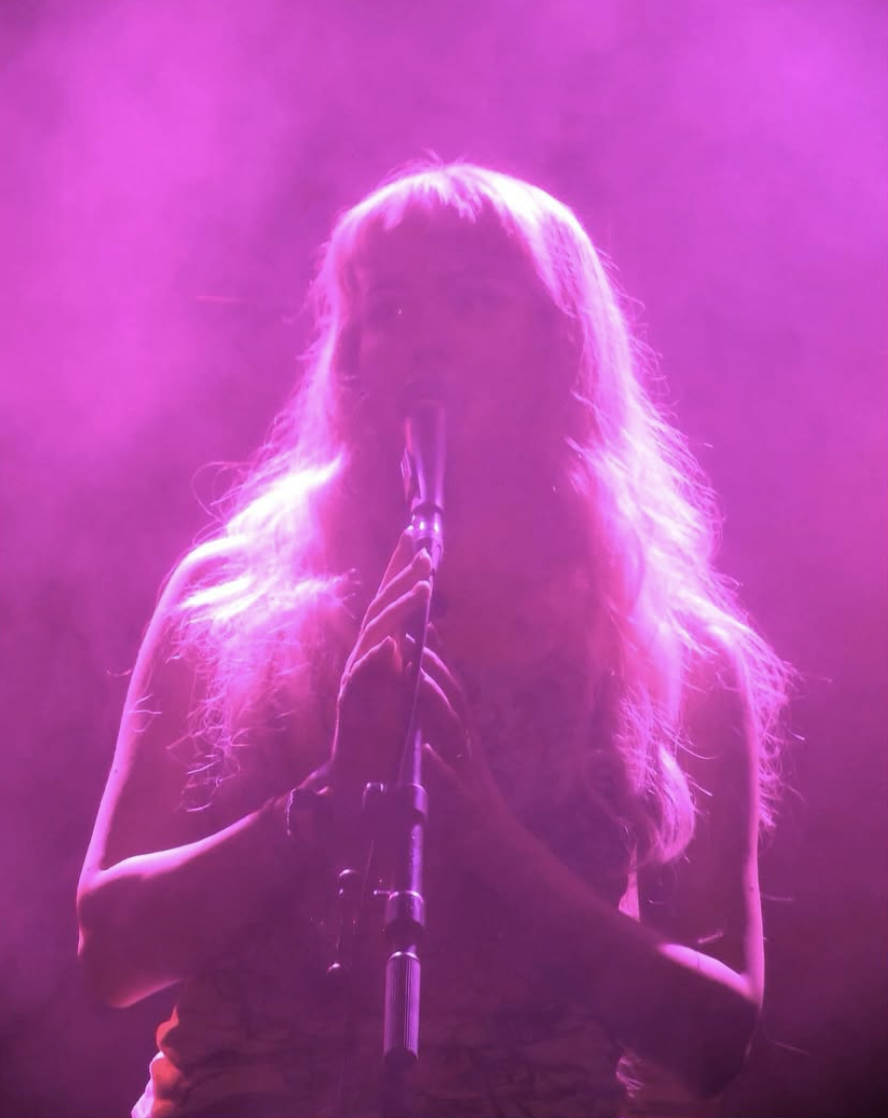Meet Saga Faye: The Voice of Early Adulthood
Photo by Ania Grinberg
I was first introduced to Saga Faye through her single, “Swedish Girl,” which was released in late May of this year. Rarely do I immediately attach myself to an artist, but Saga is different. Her authentic lyrics about growing up and her light, soft voice drew me in, and I couldn’t back away from them. I immediately went to her artist page on Apple Music and was extremely disappointed to find that she has released almost no music. Wanting more, I searched for her Instagram account (@saga.faye), which, at the time, had fewer than 9,500 followers. How had no one else heard of this girl? That was the question I asked myself whenever her limited discography played through my headphones. When she announced the release of her first EP, East of the Sun, I knew I had to sacrifice my sleep schedule and stay awake until midnight on September 12th to listen to it. It’s fair to say that it’s one of the most honest, endearing things I’ve heard in a while, and I hope that sharing my interpretations and admiration for her music might inspire a few of our readers to become fans.
The first song, “Who are you?” makes me think of yearning for a friendship that ended for good reason. In the sudden wreckage of a relationship, Saga captures the feeling of missing who someone used to be, not who they are now, and I think that’s something almost everyone can relate to.
The second song, “Swedish Girl,” is a lovely, soft track about needing to move on from childhood and facing that awkward phase in your late teens and early twenties when you still feel out of place. As a nineteen-going-on-twenty-year-old, I don’t think I can get enough of this song. Somehow, Saga captured every bittersweet thought and tender feeling I have about early adulthood and turned them into music.
The third song, “Either Way,” sounds more upbeat, but its lyrics tell another story. This track reflects on friendships that feel sweet for a time but eventually fade after you outgrow them. The song is less mournful than I expected and carries a more laissez-faire attitude. Saga knows what will happen, and she allows the relationship to run its course, seemingly indifferent to the situation.
“Dance King,” the fourth track, feels like an older vinyl song about ignoring the warning signs of a potentially catastrophic situationship coming back into your life, and choosing not to face them for her own sake. Her repetition of “don’t care” throughout the song made me laugh a little. Sometimes, you just have to protect your peace.
The final song, “I Wonder,” reminds me of returning to your primary school after growing up and realizing how small everything looks compared to how it once felt. It captures my feelings of wondering how you ever believed it was the whole world. The song accepts those emotions and arrives at a place of peace, finally coming to terms with wanting to see the world for what it truly is: something big, a little scary, but ultimately something you have to conquer.
